
-
 Stocks drop after US economy contracts amid tariffs turmoil
Stocks drop after US economy contracts amid tariffs turmoil
-
US economy unexpectedly shrinks on import surge ahead of Trump tariffs

-
 Dravid says Suryavanshi, 14, needs support from fame
Dravid says Suryavanshi, 14, needs support from fame
-
Arsenal can win 'anywhere' says Merino after Champions League defeat by PSG

-
 Bangladesh crush Zimbabwe by an innings in second Test
Bangladesh crush Zimbabwe by an innings in second Test
-
Swiatek recovers against Keys to reach Madrid Open semis

-
 Spurs captain Son out of first leg of Europa League semi-final
Spurs captain Son out of first leg of Europa League semi-final
-
US economy unexpectedly shrinks in first three months of Trump presidency

-
 India to ask caste status in next census for first time in decades
India to ask caste status in next census for first time in decades
-
Burkina junta rallies supporters after claimed coup 'plot'

-
 Forest owner Marinakis steps back as European qualification looms
Forest owner Marinakis steps back as European qualification looms
-
US economy unexpectedly contracts in first three months of Trump presidency

-
 Bilbao will give 'soul' to beat Man United: Nico Williams
Bilbao will give 'soul' to beat Man United: Nico Williams
-
Sweden arrests teen after triple killing

-
 Pakistan says India planning strike after deadly Kashmir attack
Pakistan says India planning strike after deadly Kashmir attack
-
Cardinals lay groundwork for conclave, hope for quick vote

-
 More automakers drop earnings guidance over tariffs
More automakers drop earnings guidance over tariffs
-
William and Kate release romantic image on low-key anniversary

-
 Israel says strikes Syria to shield Druze as clashes spread
Israel says strikes Syria to shield Druze as clashes spread
-
Champions Cup format 'not perfect' says EPCR boss

-
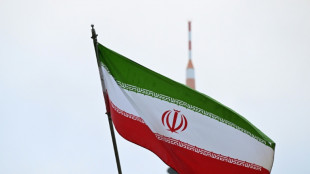 Iran hangs man as Israeli spy after 'unfair' trial: activists
Iran hangs man as Israeli spy after 'unfair' trial: activists
-
Stock markets mostly rise ahead of US economic data, tech earnings

-
 German growth better than expected but tariff turmoil looms
German growth better than expected but tariff turmoil looms
-
Sinner denies beneficial treatment in doping scandal ahead of Rome return

-
 Eurozone economy grows more than expected despite US tariff turmoil
Eurozone economy grows more than expected despite US tariff turmoil
-
Toulouse hooker Mauvaka out of Champions Cup semi

-
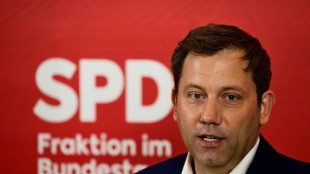 Germany's next finance minister, 'bridge-builder' Lars Klingbeil
Germany's next finance minister, 'bridge-builder' Lars Klingbeil
-
Mehidy century puts Bangladesh in command against Zimbabwe

-
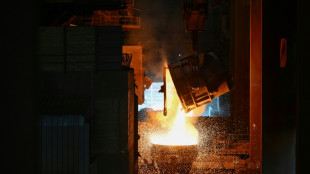 Steelmaker ArcelorMittal warns of uncertainty
Steelmaker ArcelorMittal warns of uncertainty
-
Vietnam's Gen-Z captivated by 50-year-old military victory

-
 Moroccan-based cardinal says Church does not need Francis 'impersonator'
Moroccan-based cardinal says Church does not need Francis 'impersonator'
-
US official tells UN top court 'serious concerns' over UNRWA impartiality

-
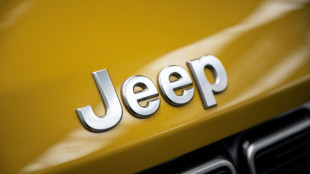 Jeep owner Stellantis suspends outlook over tariffs
Jeep owner Stellantis suspends outlook over tariffs
-
New Zealand, Phillippines sign troops deal in 'deteriorating' strategic environment

-
 Aston Martin limits US car imports due to tariffs
Aston Martin limits US car imports due to tariffs
-
Pakistan says India planning strike as tensions soar over Kashmir

-
 Australian triple-murder suspect allegedly cooked 'special' mushroom meal
Australian triple-murder suspect allegedly cooked 'special' mushroom meal
-
Most stock markets rise despite China data, eyes on US reports

-
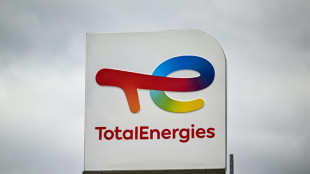 TotalEnergies profits drop as prices slide
TotalEnergies profits drop as prices slide
-
Volkswagen says tariffs will dampen business as profit plunges
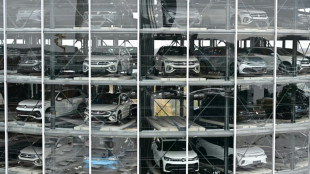
-
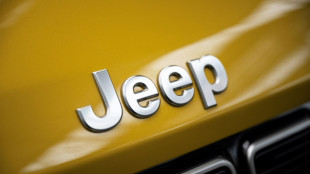 Jeep owner Stellantis suspends 2025 earnings forecast over tariffs
Jeep owner Stellantis suspends 2025 earnings forecast over tariffs
-
China's Shenzhou-19 astronauts return to Earth

-
 French economy returns to thin growth in first quarter
French economy returns to thin growth in first quarter
-
Ex-Premier League star Li Tie loses appeal in 20-year bribery sentence
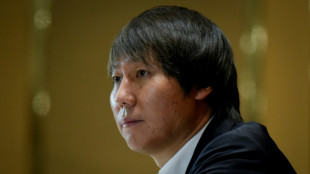
-
 Belgium's green light for red light workers
Belgium's green light for red light workers
-
Haliburton leads comeback as Pacers advance, Celtics clinch

-
 Rahm out to break 2025 win drought ahead of US PGA Championship
Rahm out to break 2025 win drought ahead of US PGA Championship
-
Japan tariff envoy departs for round two of US talks

-
 Djurgarden eyeing Chelsea upset in historic Conference League semi-final
Djurgarden eyeing Chelsea upset in historic Conference League semi-final
-
Haliburton leads comeback as Pacers advance, Pistons stay alive


AI vs EU: ChatGPT shakes up Brussels plans for regulation
How do you protect people using new technology when it can radically change from one day to the next?
That's the riddle the EU faces as it races to regulate artificial intelligence.
AI is in wide use, but the conversational robot ChatGPT has transformed how people view the technology -- and how regulators should monitor it to protect against risks.
Created by US startup OpenAI, ChatGPT appeared in November and was quickly seized upon by users amazed at its ability to answer difficult questions clearly, write sonnets or code and provide information on loaded issues.
ChatGPT has even passed medical and legal exams set for human students, scoring high marks.
But the technology also comes with many risks as its learning system and similar competitor models are integrated into commercial applications.
The European Union was already deeply into the process of creating an online regulatory framework, and now must go back to the drawing board to figure out how to effectively regulate AI.
The European Commission, the EU's executive arm, first announced a plan in April 2021 for an AI rulebook, and the European Parliament hopes to finalise its preferred AI Act text this month.
The EU industry commissioner, Thierry Breton, said MEPs, the commission and member states are working together to "further clarify the rules" on ChatGPT-type tech -- known as general purpose AI -- systems that have a vast range of functions.
- Opportunities v risks -
Social media users have had fun experimenting with ChatGPT output, but it's not a game. Teachers fear students will use it to cheat, and policymakers fear it will be used to spread misinformation.
"As showcased by ChatGPT, AI solutions can offer great opportunities for businesses and citizens, but can also pose risks," Breton has said.
"This is why we need a solid regulatory framework to ensure trustworthy AI based on high-quality data."
The plan is for the European Commission, the European Council, which represents the 27 member states, and the parliament to discuss a final version of the AI act from April.
Dragos Tudorache, the MEP overseeing the push to get the AI Act through parliament, said ChatGPT was one the publicly known, news-making example of general-purpose AI and various derivatives.
Using what is known as a "large language model", ChatGPT is an example of generative AI that -- operating unguided -- can create reams of original content, including images and text, by mining past data.
"We will indeed propose a set of rules to govern general-purpose AI, and foundational models in particular," said Tudorache, a Romanian MEP.
Last week, Tudorache and Italian MEP Brando Benifei presented fellow legislators with a plan to impose more obligations on general-purpose AI, a text which did not feature in the commission's original proposal.
Some experts complain the risks from such systems like ChatGPT were always clear and the warnings were shared with EU officials as work started on the AI Act.
"Our recommendation back then was that we should also regulate AI systems that have a range of uses," said Kris Shrishak, technology fellow at the Irish Council for Civil Liberties.
But he said it was also just as important to identify the risks from generative AI systems once they are deployed.
- 'Good foundation' -
Shrishak said the act's effectiveness would depend on the final draft but that it "lays a good foundation. It does have certain mechanisms to identify new risks".
A more pressing issue would be enforcement, he warned, adding that the parliament was working towards strengthening this aspect.
"The regulation is just a piece of paper if it's not enforced," Shrishak told AFP.
OpenAI CEO Sam Altman has suggested "major world governments" and "trusted international institutions" come together and produce a set of rules that explicitly say what the system should and should not do.
Asked by an AFP reporter to say how it would regulate itself, the ChatGPT engine said it would welcome "responsible and ethical regulation".
And it called for a law that "recognises the potential benefits of AI while also addressing the potential risks and challenges."
P.M.Smith--AMWN